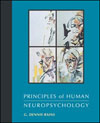Memory is an extraordinary process, one of the most central aspects of being human. Through it, our nervous system codes past events in a way that sometimes allows us to consciously remember events in the distant past as vividly as if they had just occurred, and these memories often carry with them intense emotions ranging from the blissful to the tormenting. Other times, past events are represented in the nervous system in a way that does not yield conscious memories and yet affects subsequent behavior, as when we engage in a motor skill such as riding a bicycle. It seems as if everything except the slender sliver of the present moment is either memory of the past or imaginings of the future. Yet even our experience of the present moment is inextricably interwoven with our memory. The meaning and significance of the people and things in the present are dependent on our memory, so that the present loses its salience without the past, an idea that Gerald Edelman (1989) captured in the title of his book The Remembered Present. What would it be like to have a devastating impairment of memory so that nothing new could be learned? The magnitude of such an impairment was brought home to me when, in the mid-1970s, I heard the eminent neurophysiologist John Eccles describe the famous patient known as H. M., who had undergone bilateral removal of medial temporal-lobe structures for the relief of epilepsy. This was a frankly experimental procedure that, although it achieved its aim of eliminating the patient's seizures, had horrible unintended consequences: H. M. was apparently unable to remember anything that happened to him, unable to learn anything new. Tragically, although he retained many of his memories from before the surgery, any memory of experiences after the surgery dissolved in a matter of seconds, lost forever in a blank void of amnesia. When, a few years later, I had an opportunity to meet and work with H. M. myself, the poignancy of his impairment made an indelible impression. I found him to be an amiable and polite man who seemed to enjoy the casual conversation that we struck up on first meeting. But I had come too early to his room, a hospital-like room in a laboratory at MIT, where he was staying during one of his periodic visits to Boston. Because he was still in bed, I explained that we would chat a few minutes, and then I said I would leave so that he could get up and have breakfast before we began work. After a few more minutes of chatting, I began to excuse myself. As I did so, to my surprise, H. M. expressed concern. He asked why I was leaving, whether he had done something to make me leave, something perhaps inappropriate. I reassured him that he had not, but he continued to express his concern. It was clear that he had not only forgotten our earlier plan of only chatting briefly but also did not know what had just occurred in the immediate past. Later, in response to my questions, he described what his inability to remember felt like: "Well, it's a big question mark you have always. And you wonder, did I or didn't I? That's what I mean by a big question mark." After a morning of work, during which I gaveH. M. a variety of memory tests and talked to him at length about the nature of his experience, it was time for us to end our work. As we said good-bye, something happened that has stuck with me ever since. As we shook hands, H. M. grabbed my arm and, smiling, playfully held on to me for a long moment so that I could not leave. I have always wondered if this gesture perhaps came out of a desperate yearning to hold on to his past. Was it perhaps a manifestation of his awareness that when people leave him they are, for him, truly gone, leaving no trace in his memory? |



 2002 McGraw-Hill Higher Education
2002 McGraw-Hill Higher Education